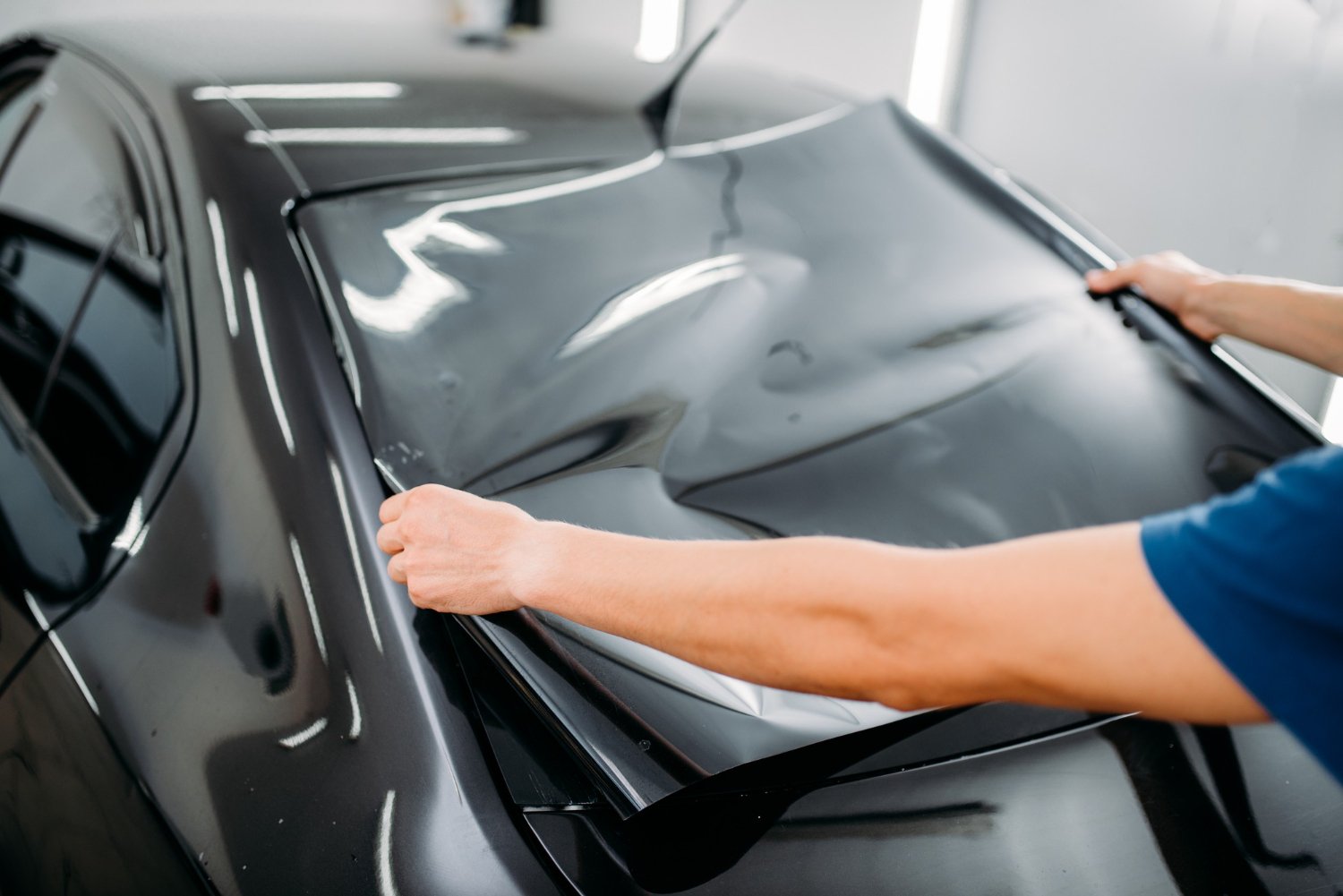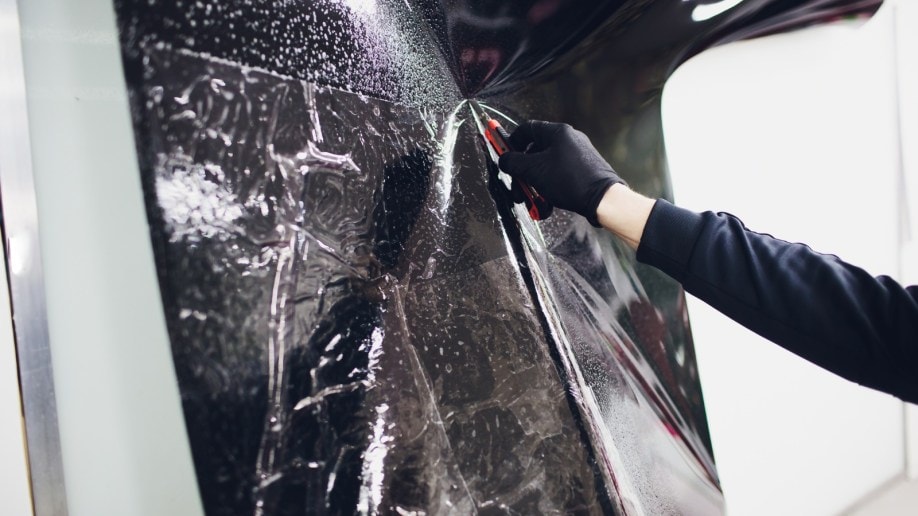Why Automobile Window Tinting Is Vital for UV Protection and Indoor Conservation
Car window tinting offers a critical function in protecting both residents and the car itself from harmful UV rays. These rays can cause skin damage and accelerate the wear and tear of an automobile's inside. By blocking a considerable percentage of UV radiation, high-grade tinting not only improves comfort yet likewise maintains the automobile's aesthetic appeal. Understanding the different benefits of window tinting increases crucial inquiries about its requirement in today's auto landscape.
Comprehending UV Rays and Their Results on Your Skin
Although many individuals take pleasure in the heat of the sunlight, they often underestimate the dangerous impacts of ultraviolet (UV) rays on their skin. UV rays, mainly classified right into UVA and UVB, pass through the skin and can create different damages. UVA rays are linked to skin aging and add to the growth of skin cancers, while UVB rays are accountable for sunburn and play a considerable role in creating skin cancer.Repeated exposure to UV radiation can bring about a breakdown of collagen and elastin, causing early aging, wrinkles, and sunspots. Additionally, individuals with lighter complexion are especially at risk to these results, highlighting the relevance of safety steps. Normal use of broad-spectrum sun block and wearing safety clothes can reduce some dangers. Automobile window tinting offers an extra layer of protection, reducing UV direct exposure while driving, consequently protecting the skin from the unsafe impacts of sun exposure throughout traveling.
The Effect of UV Rays on Your Car's Inside
UV rays can considerably damage a lorry's inside, causing fading furniture and materials in time. In addition, long term exposure can increase the danger of control panel breaking, endangering the visual and structural stability of the car. Additionally, heat buildup from these rays can develop an uneasy setting for passengers and might strain the vehicle's cooling system.
Fading Furniture and Fabrics
A significant problem for vehicle proprietors is the harmful impact of ultraviolet (UV) rays on upholstery and materials. With time, long term direct exposure to these rays can cause considerable fading, modifying the appearance of seats, rugs, and headliners. This fading not only interferes with the aesthetic value of an automobile however can also influence its resale price. Fabrics, including leather, can come to be fragile and shed their original appearance, making the interior less comfy. Furthermore, particular shades and products are more at risk to fading, leading to unequal wear. To reduce these impacts, vehicle window tinting acts as an efficient obstacle, mirroring dangerous UV rays and preserving the integrity and vibrancy of indoor materials for an extensive period.
Dashboard Splitting Risks
Many lorry proprietors might not recognize the vulnerability of their dashboards to the relentless impacts of sunlight. Extended exposure to ultraviolet (UV) rays can lead to considerable damage of control panel materials, particularly plastics and plastic. In time, these materials can become breakable and lose their flexibility, leading to unpleasant splits that not only reduce the visual appeal however additionally minimize the overall value of the automobile. Cracked control panels can further intensify indoor damage by permitting dirt and particles to gather in gaps, possibly resulting in extra considerable repairs. By spending in auto window tinting, lorry proprietors can aid mitigate UV direct exposure, thereby preserving the integrity of their dashboard and prolonging the life expectancy of their car's interior.
Heat Accumulation Consequences
The interior of an automobile is particularly at risk to warm accumulation, mainly due to the penetration of sunlight through windows. This warmth can bring about numerous detrimental impacts on the vehicle's inside. Heats can speed up the deterioration of materials, triggering upholstery to fade and plastic elements to warp or fracture. Long term direct exposure to UV rays additionally adds to the deterioration of leather and plastic surfaces, leading to unsightly damage that lowers overall automobile worth. Furthermore, excessive heat can create an unpleasant atmosphere for guests, making the driving experience less pleasurable. Implementing auto window tinting can considerably reduce these results by blocking a substantial amount of UV rays and lowering heat buildup, thereby preserving the lorry's interior for a longer duration.
Exactly How Vehicle Window Tinting Blocks Harmful UV Rays
Automobile window tinting uses various UV ray absorption methods that properly protect occupants and interiors from damaging radiation. By integrating specialized products, these colors not only block UV rays however likewise add to substantial warmth reduction within the car. This double benefit enhances convenience while protecting the stability of indoor surface areas.
UV Ray Absorption Techniques
Obstructing harmful UV rays is a primary function of vehicle window tinting, accomplished with numerous absorption methods. Top notch color movies are engineered with materials that soak up and reflect UV radiation properly. These films often incorporate metal oxides, which develop an obstacle versus UV rays while preserving clearness. Furthermore, some tints make use of colored polyester layers that absorb UV energy without endangering exposure. The effectiveness of these techniques varies depending upon the film's high quality and density, with costs alternatives providing as much as 99% UV security. This absorption not just safeguards guests from skin damages however also preserves the vehicle's interior from fading and fracturing. Overall, UV ray absorption strategies in vehicle window tinting play an important function in enhancing security and long life.
Heat Reduction Advantages

Enhancing Convenience and Decreasing Warmth With Window Tinting
Window tinting serves as a functional solution for boosting comfort and reducing warm within automobiles. By using a thin movie to windows, a considerable quantity of solar warmth is obstructed from entering the cabin, resulting in a much more temperate environment. This reduction in warmth can lead to an extra enjoyable driving experience, particularly during warm summer season. Additionally, reduced interior temperatures can decrease the dependence on a/c, which not only saves power yet also adds to improved fuel efficiency.Moreover, window tinting decreases glare from the sun, permitting vehicle drivers and passengers to concentrate much better when driving without squinting or being sidetracked. This increased presence improves overall security while driving. Additionally, a cooler interior translates to less use on automobile components, adding to lasting convenience and capability. Overall, window tinting is an efficient method for keeping an enjoyable atmosphere within the vehicle while advertising comfort and reducing warmth direct exposure.
The Aesthetic Advantages of Tinted Windows
Colored windows not just enhance convenience and decrease warmth but additionally add greatly to the visual appeal of vehicles. They give a streamlined, advanced look, permitting vehicle owners to express their personal style. The refined darkness of the color can produce a unified look, making an automobile look more sleek and modern.Moreover, various shades of tint enable for customization, enabling individuals to choose a level that complements their vehicle's design. This personalization can result in a much more aggressive or classy visual, relying on personal preference.Additionally, colored windows can aid to decrease glow while driving, consequently enhancing the total experience. The enhanced privacy that comes with tinted windows likewise includes an aspect of intrigue, making the car much more visually click for info fascinating. In general, the visual advantages of colored windows expand past plain look, boosting both the feel and look of the automobile.
Increasing Your Lorry's Resale Value With Tinting
While many car proprietors concentrate on instant convenience and looks, buying window tinting can additionally greatly enhance an automobile's resale value. Colored windows not only offer a sleek appearance yet likewise signal to prospective customers that the car has actually been well-maintained and shielded from sunlight damage. This protective layer helps protect the interior, protecting against fading and fracturing of furniture and dashboard components.Moreover, vehicles with window tinting frequently draw in a wider variety of purchasers who focus on convenience and UV protection. Improved privacy and lowered glow further add to a much more delightful driving experience, making the lorry much more attractive in a competitive market.As auto buyers significantly look for automobiles with added attributes, window tinting becomes a valuable investment. The prospective return on this fairly inexpensive improvement can significantly offset the overall costs when it comes time to offer, making it a smart option for any automobile owner.
Selecting the Right Window Color for Your Demands
Picking the ideal window color includes understanding numerous options readily available on the marketplace, each dealing with different preferences and needs. Initially, people must think about the level of UV protection needed. Films with higher UV protection percents are appropriate for those regularly subjected to sunlight.Next, the kind of color ought to be evaluated, consisting of dyed, metalized, and ceramic choices. Colored colors provide privacy at a cost effective cost, while metalized colors give extra heat resistance. Ceramic tints, though costlier, are understood for their superior UV security and clarity.Moreover, local guidelines pertaining to color darkness and reflectivity need to be taken into consideration, as these can vary greatly.Ultimately, the selection of window tint should align with individual way of living, budget, and aesthetic preferences, guaranteeing both performance and style. Consulting with a professional installer can likewise aid in making an educated choice tailored to particular automobile needs.
Often Asked Questions
How Much Time Does Car Window Tinting Normally Last?
Automobile window tinting normally lasts between 5 to 10 years, relying on variables such as the top quality of the color, installment, and environmental conditions. Routine upkeep can aid extend its lifespan and effectiveness.
Is Window Tinting Legal in All States?
Window tinting validity differs by state, with certain laws controling darkness and reflectivity degrees - auto tint clinton township. Some states enforce more stringent guidelines, while others enable greater freedom. It's essential for lorry owners to check regional laws prior to continuing
Can I Tint My Windows Myself?

What Is the Price Range for Specialist Tinting?

Will Window Tinting Affect My Exposure While Driving?
Home window tinting can affect visibility while driving, depending upon the darkness and type of color applied - auto tint clinton township. Usually, lighter colors keep far better presence, while darker alternatives may decrease clarity, particularly in low-light problems